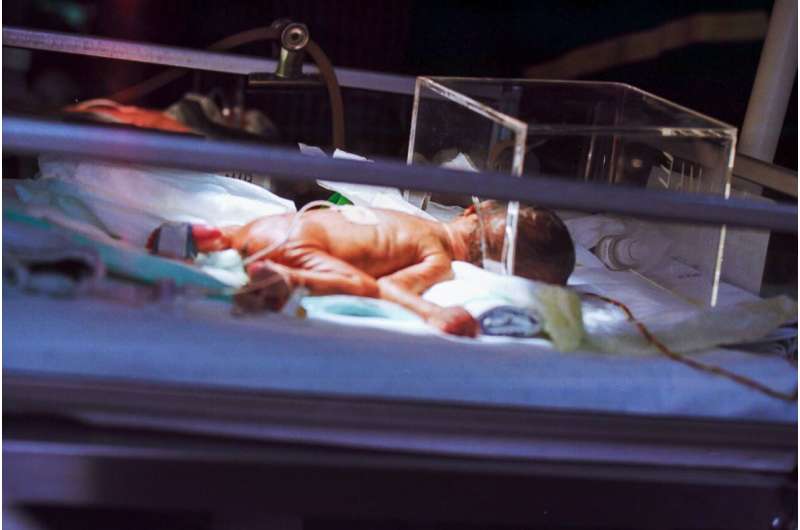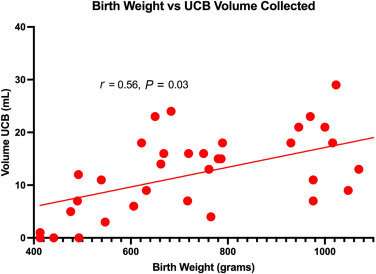This article has been reviewed according to Science X's editorial process and policies. Editors have highlighted the following attributes while ensuring the content's credibility:
fact-checked
trusted source
proofread
Preventing brain damage in preterm babies

Hudson Institute researchers have conducted the first attempts to collect umbilical cord blood cells, with a view to using them to prevent brain damage in preterm babies.
The trial led by Dr. Lindsay Zhou, under the supervision of Monash Children's Hospital neonatologist Professor Atul Malhotra, was published recently in the journal Cytotherapy.
Cord blood is the blood left in the umbilical cord and placenta of newborn babies after birth. It is rich in stem cells which can be used to help protect, repair and grow cells in the body, and according to Dr. Zhou these cells have shown strong promise as a treatment for neonatal brain injury in pre-clinical models and early-phase clinical trials.
Life-giving cells: New preterm treatment
"While it has been tested in infants born at term, these life-giving cells have not been tested in preterm babies, who arguably have the greatest need for new treatments because their risk of brain injury and disability later in life is so much greater," he said.
The researchers took cord blood from 38 infants born before 28 weeks gestation. Babies born extremely preterm (<28 weeks) have a high chance of long term developmental issues, including cerebral palsy, bronchopulmonary dysplasia, learning and behavioral issues.

Of the babies in the trial, 21 were male and 17 female. Twenty-four (63.1%) were delivered via cesarean section, and 11 (28.9%) were a multiple birth. The average gestation age of babies in this study was 26 weeks and average birth weight was 761.5 grams.
The team from The Ritchie Center was able to collect an average of 19 ml/kg of cord blood from these preterm babies, which is similar to term babies by body weight. The procedure was successful in 72% of cases.
Important findings for preterm infants
According to Professor Malhotra, these findings are important "because we have shown we can collect these cells in extremely small babies and can now use them in the CORD-SAFE study currently underway at the Monash Children's Hospital."
The CORD-SAFE study is investigating the feasibility and safety of administering autologous (their own) cord blood cells to these extreme premature infants.
The study is nearing completion phase, with results likely by the end of the year.
More information: Lindsay Zhou et al, Feasibility of cord blood collection for autologous cell therapy applications in extremely preterm infants, Cytotherapy (2023). DOI: 10.1016/j.jcyt.2023.01.001




















